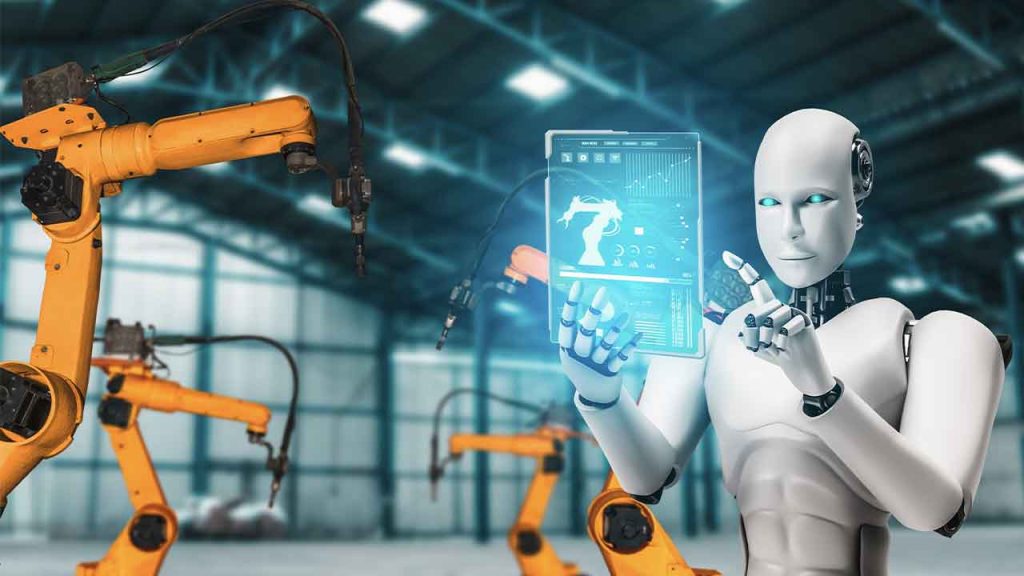From Execution to Intelligence: Generative AI’s Role in the Future of MES | SPONSORED
At the second edition of the MES & Industry 4.0 International Summit in Porto, Portugal, Lucian Fogoros, Co-founder of IIoT World, spoke with Francisco Almada Lobo, CEO and Co-founder of Critical Manufacturing, about how generative AI is evolving the role of Manufacturing Execution Systems (MES)—from rule-based executors to intelligent, collaborative decision-support platforms.
The conversation revealed more than future potential—it surfaced concrete, early-stage implementations already delivering measurable outcomes in real manufacturing environments.
From Structured Data to Smart Suggestions
The shift begins by connecting large language models (LLMs) to clean structured MES data. This integration allows systems to interpret production data and answer contextual queries like: “What happened in the last shift?” or “Which machines created recurring bottlenecks?”
These insights, traditionally buried in static dashboards or complex custom reports, now surface instantly—giving operational teams real-time situational awareness without requiring advanced technical skills.
Rather than acting autonomously, the system generates intelligent suggestions, helping engineers and plant managers understand what’s happening and why.
The Co-Pilot Model: Human-in-the-Loop Intelligence
Generative AI’s role isn’t to replace existing logic engines or operator oversight but to augment them. The new model is one of collaboration: the MES system observes patterns in existing rules and logic and then suggests improvements.
For example, it might analyze how materials are dispatched between workstations and recommend adjustments based on real-time data—offering the operator a chance to approve or reject the change. This co-pilot approach allows humans to remain in control while significantly reducing the time and effort required to spot inefficiencies.
This dynamic sets the stage for a smarter, more agile factory floor—where recommendations are continuously improving as more data and operator feedback flow into the system.
Why Now?
Several converging factors are accelerating this evolution:
- Labor constraints are forcing manufacturers to do more with fewer skilled workers.
- Productivity pressures are driving demand for more dynamic, optimized operations.
- Supply chain volatility has exposed the need for faster, more informed decision-making at the shop floor level.
In early implementations, AI-driven scheduling suggestions have even outperformed traditional MES logic, demonstrating how generative models—when properly structured—can deliver tangible business value, even in domains they weren’t originally trained for.
Trust, Guardrails, and Explainability
Widespread adoption will hinge on building confidence in the system. Generative AI still carries risks—most notably, its tendency to “hallucinate” when data is ambiguous or poorly structured.
To address this, manufacturers integrating AI into MES must prioritize:
- Guardrails that restrict AI operations to within predefined logic, policy, and safety boundaries.
- Traceability that allows every recommendation to be backtracked and explained with visibility into alternatives considered.
- Human validation as a core requirement, particularly during the initial deployment phases.
Only with transparent systems and accountable outputs can manufacturers develop the trust required for AI to become a standard decision-support layer.
Beyond Hype: A Human + AI Collaboration Model
While some conversations around AI in manufacturing remain theoretical, this approach is already being tested in real production environments. The evolution of MES into an intelligent, adaptive platform is not about full autonomy—it’s about building systems that learn with their human counterparts, continuously adapting to factory-specific conditions.
The industry is still in its early innings, but the trajectory is clear: MES is moving from a passive executor of instructions to an active partner in decision-making.
In an industry where precision and reliability are non-negotiable, generative AI is emerging not as a disruptor—but as an enabler of smarter, faster, and more informed operations. Manufacturers who begin experimenting with AI-augmented MES today are investing not in a trend but in a long-term transformation of how their factories think, adapt, and perform.
Sponsored by Critical Manufacturing.
About the author
Lucian Fogoros is the Co-founder of IIoT World
